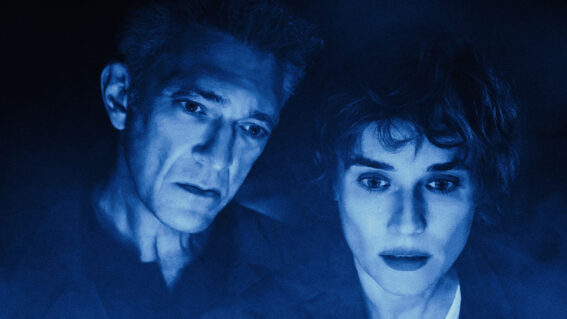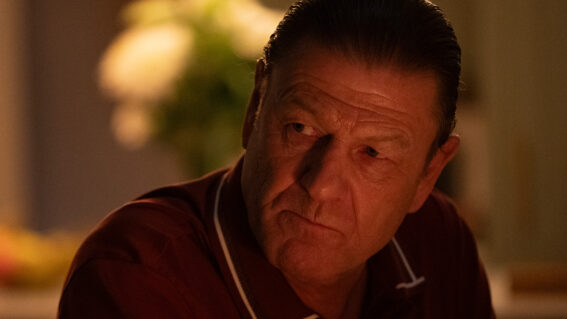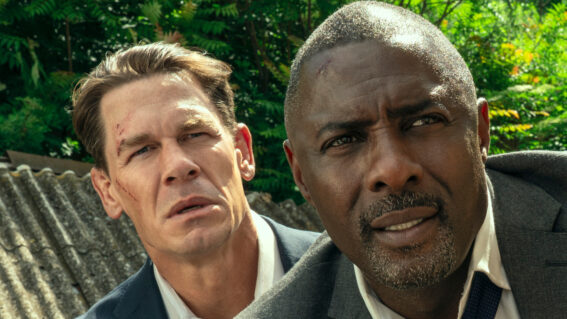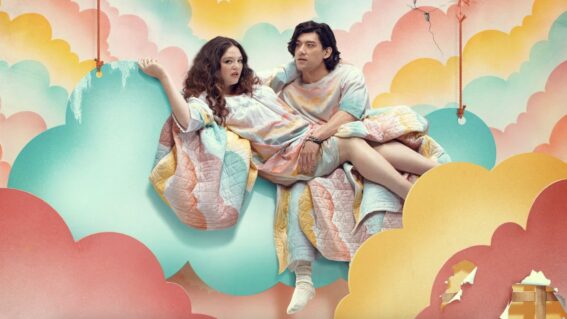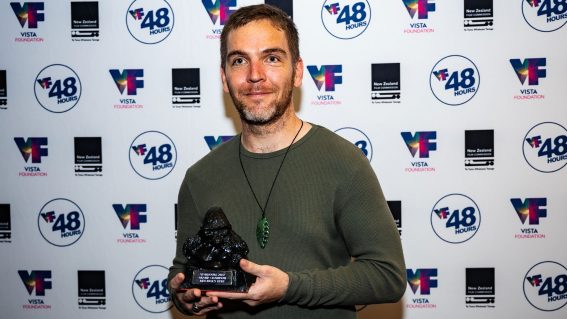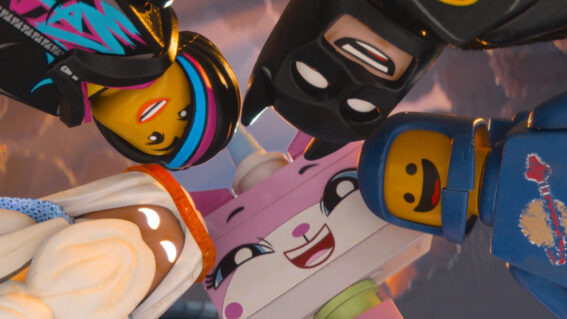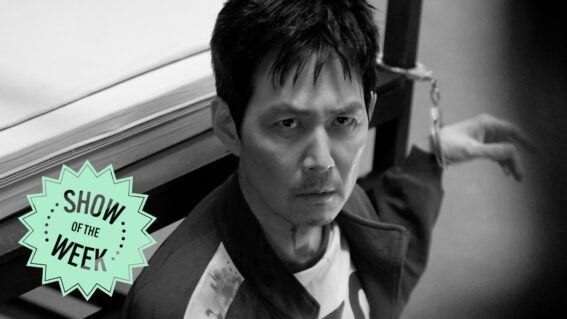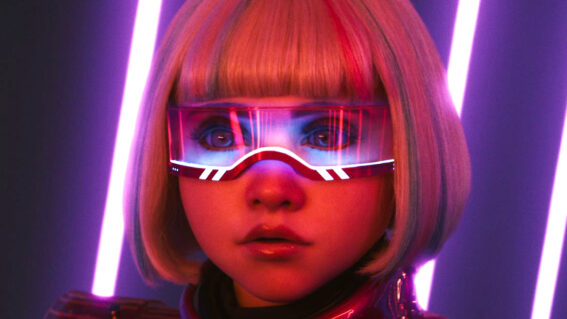Interview: ‘Last Cab to Darwin’ star Michael Caton
Last Cab to Darwin enjoyed strong theatrical runs in both NZ and Australia (where it was made and set, don’t hold that against the pic). As it comes to home video – oh, just in time for Xmas, we see what’s going on here – Flicks jumped at the chance to sit down with Aussie […]
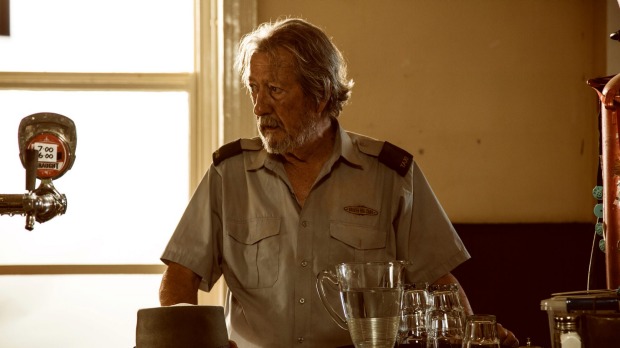
Last Cab to Darwin enjoyed strong theatrical runs in both NZ and Australia (where it was made and set, don’t hold that against the pic). As it comes to home video – oh, just in time for Xmas, we see what’s going on here – Flicks jumped at the chance to sit down with Aussie screen icon Michael Caton to talk about the film, luncheon sausage, meat raffles, a racy Aussie soap, and plenty more. What a lovely dude…
FLICKS: Aussie cab drivers are a breed, aren’t they? In the context of this film, a dying breed is perhaps a better description.
MICHAEL CATON: Yes. I think so. It’s probably one of the few jobs I haven’t done between gigs [laughter].
There’s a bit of certification required, to be a taxi driver obviously, so it’s not really something you can walk straight into, right?
Yes, although, I don’t think there’s a lot, when you have to basically tell the taxi driver where and how to get to a place – or how to turn on their machine so the machine can tell them how to get there [chuckles].
Prior to the film, had you done a drive across the country? A big, long stretch before?
Yeah. In my generation, there’s been a lot of that – we’ve been to all sorts of parts of Australia. But that was something unique with the film, because it was continuous. Usually you fly to a place, grab a car, and you’re driving hundreds of kilometres, but that was just in one line. And then you had the added, interesting thing of flies. There had been a little rain beforehand, and so the flies had bred up. One day in William Creek, I swallowed four, and the director – he got the record – he had six.
So no catering required then?
No. And you had someone in front of the camera keeping the flies of the lenses, waving beside the camera just to keep the flies off. And you’re sitting there looking really enigmatic, and there’s some shots where you see me looking at the sunset and my eyes, nose, and mouth – there were flies everywhere! You’ll notice at one stage, the Aussie salute.
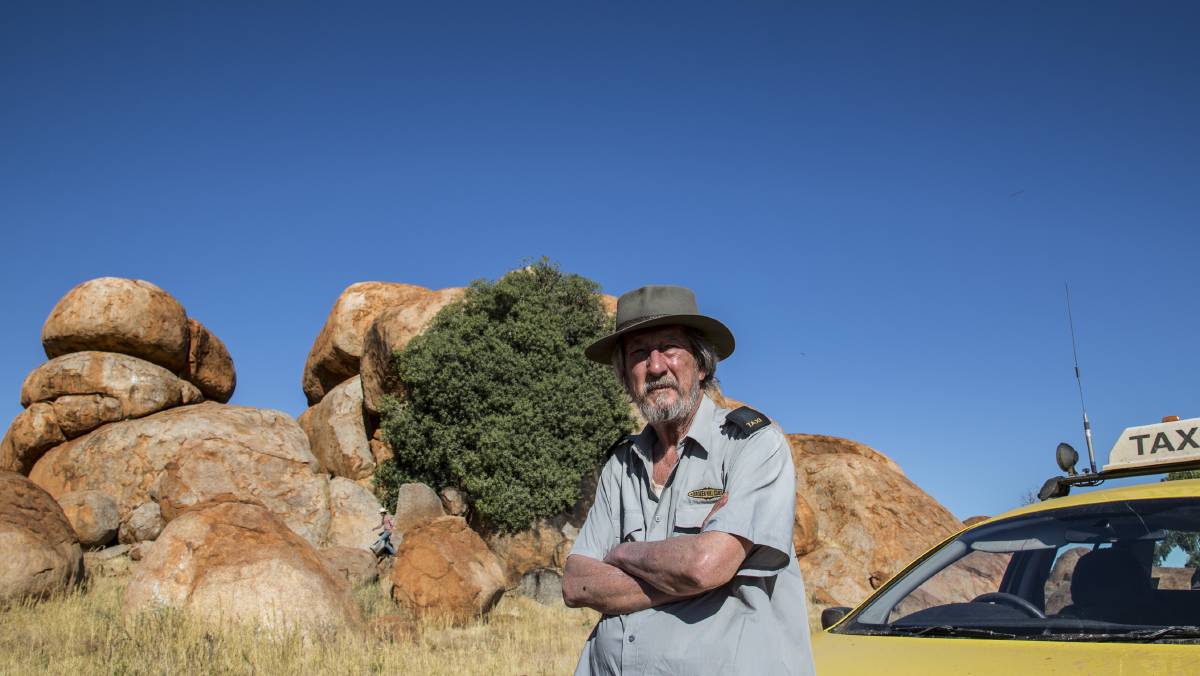
When the film opens, you’re treating yourself to a really good night out that culminates in a fantastic sandwich on white bread, with a good slice of luncheon sausage if I’m not mistaken. Maybe a bit of bologna.
Devon. Was it bologna? No, I don’t think… we don’t call it bologna – we call it devon.
I haven’t heard that expression before, but the same thing, it’s just a luncheon sausage.
Yes, indeed.
Big squirt of tomato sauce. When was the last time you made yourself that as a midnight snack?
A long, long time ago [laughter]. I’m more a salami, gherkin, cheese sort of person, really.
And decent bread.
I’ve brought the tough questions today, Michael.
Because my wife doesn’t do any grains, the bread she brings home, if you could call it that, you try to toast it and nothing happens – it just gets hot. No sight of it toasting, I don’t know what it’s made out of. I just love it when she goes away and I go down and get a big slab of white.

One of the other things I really like from the opening of the film is your crew of pals that you’re at the pub with.
Aren’t they a great mob?
There’s a cluster of those gents in every establishment of that type in every country.
Yes, there is.
They’re the guys holding up their table – it’s probably been their table and it’s always their spot. At the Returned Services Club watching the league, I was asked once, “Where’s your seat?”, like it is yours, pretty much. That camaraderie is awesome to see, but then it’s also introducing this fact that there are guys going to drop out of that friendship, and then that time’s coming for all of them in a way.
Yeah, it is. It sort of happened to us in Bondi, too. I’m a “blow-in” – I’ve only been there 30 years – but a lot of my mates have lived all their lives there, and you go down to the New Beach Hotel and we always had our table out the front. Someone would get there early to grab it, because you could have a cigarette, and then there was the meat tray, you always had the meat tray.
The meat raffle?
Yeah. The guy who did the meat trays just passed away – a wonderful man. And then what happened was, for some unknown reason, they moved inside, and I can’t handle it inside because my ears aren’t great – I think it’s a bit too much rock and roll. Then the screens – it’s all too distracting. So gradually we dropped off – we never go to the pub on a Friday night now. A couple do, but the whole group that used to go there [?].
One of the things that I find a bit sad about that experience, is that the pub’s this haven and it’s this place where you’re going to avoid everything. You’re going there to avoid time, you’re going there to avoid reality, and to kind of reach the stage in blokes’ lives where the hand of the grim reaper is going to reach and pull, actually like yank people out of this place that has kind of been their sanctuary. It’s quite sad, particularly sad.
That was the interesting thing about doing the film was at 72, you realise you’re not going to get another lap [chuckles].
Well, you never know.
Yeah. I don’t think I’ll get another lap, and the mortality is sort of reinforced, you know? You think about it a lot more at 72 than you did at 52 [chuckles].
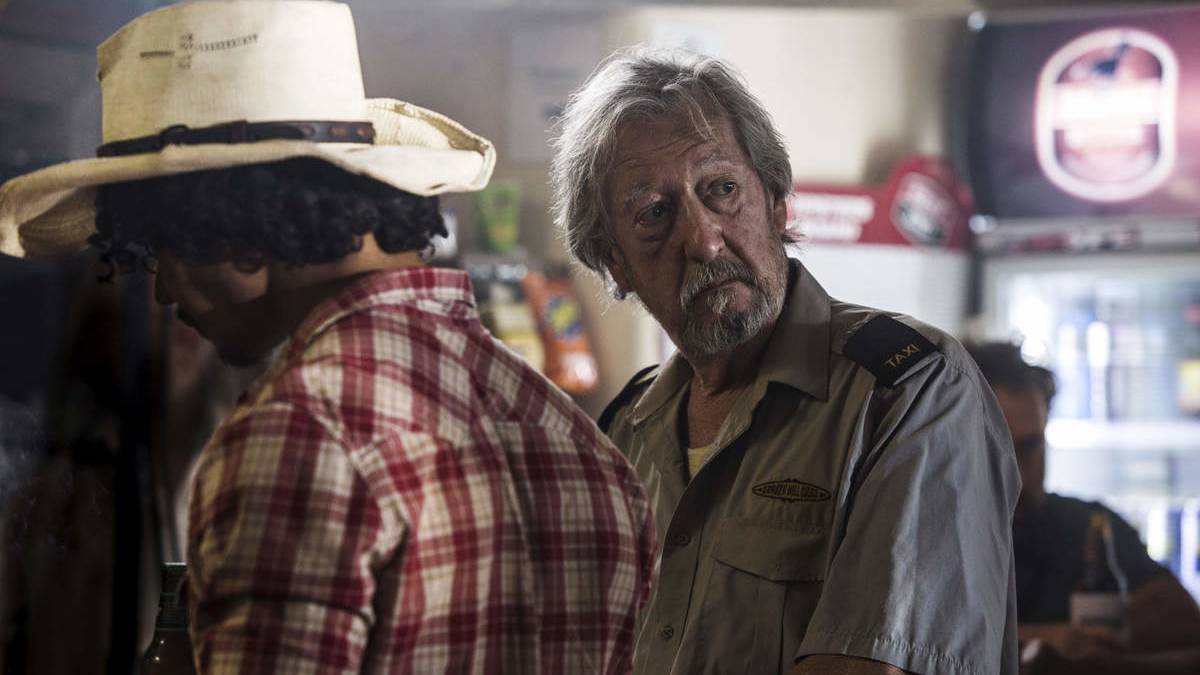
I guess that’s something that you deal with on your own timeline, your own way. But with this film in particular, were you looking for a role that would contain those sorts of themes? Or was this something that came out of the blue?
No. Look, really, you don’t have that luxury. I just couldn’t believe my luck that at my age to score a role like that right in the middle of the film, where you’re just about in every scene, because by your very age and the nature of the film, there’s more and more young people’s roles. So it was just such great luck that fell in my lap, and it probably happened because Jeremy Sims, our director, knew my work. I was with Jeremy when he did his first television gig – that show called Chances that started off about a family who wins the lottery.
Was that the slightly racy soap?
Yes, Jeremy, our director, ended up with the best-known backside in Australian television! I’ve been saying they paid me extra to keep my clothes on [laughs].
With a film in which mortality is such a core part, were there any dark moments for you personally?
Look, there’s big scenes there, but I’m pretty instinctive and I don’t believe in going over it too much. The one scene that I really went over too much in my head was the scene in the actual hospital, you know when he collapses. I had to act that. I usually try to be in that, whatever I’m doing, but I’d gone over too much in my head. John Howard, who plays the chief of the mates – years ago I had a similar scene where I just had to turn around and there had to be tears in my eyes and everything – and I was talking to him about that, “Jesus, there’s no build-up that.” “Well, Michael, you might just have to act!”
As your character sets off on his journey, he’s literally just got his life and his car. Is there a particular kind of sense of freedom to be embraced in that idea? That it’s just you and your vehicle, and away you go?
Well, there is. I love driving long distances, and a lot of the time, because Australia is a big country and you would drive 1,000 kilometres from Sydney to Melbourne to do a job. I love that. It sort of funnels your concentration in the driving, but then you can get onto themes in your mind and really explore them. If you’re working on a story or a script, or something, it’s a wonderful thing to do because it only requires about 5 or 10% of your mind power to do what you’re doing. And then the rest, because it’s channeled there, you could work through lots of themes. I’ve always enjoyed it. Like I said, if I hadn’t been an actor, I probably would have ended up as a truck driver.
I think truck drivers have got to behave themselves a little better than actors.
Exactly, yes.
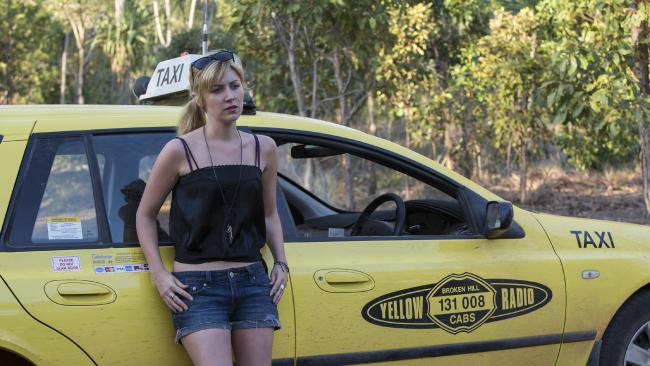
How was your relationship with the vehicle itself by the end of the shoot? Was it a prison for you to shoot in or was it a welcome relief because, at least, it had a fan?
Of course, during all the takes we had to switch all the air con off. And Emma, who plays Julie, she finally destroyed the front suspension of the car – put it in this hole, and the front suspension was never the same again. We found out all sorts of things like Welch plugs. I didn’t even know about Welch plugs but if they go, they’re very bad for the car. And we had two cars, we had two cabs. One was Innie and one was Outie. And Innie had mounts for all the cameras where we could put them, and then Outie was sort of for the exterior shots or we might strap a camera onto the bonnet, or whatever.
We set it in a nebulous time. The era where this actually happened was 96 – when the real Max Bell drove to Darwin was in 96 – so we couldn’t afford to have that authenticity because you’re just on public roads, and couldn’t afford it with our budget. The timing of it is a little bit nebulous, but the cars do have a character of their own.
You’ve got to remember that our director, Jeremy, he was not a small man. He was down behind the back seat with a black thing over him and a video monitor, trying to hide behind the back seat [laughter].
We’ll come back in a second to some of the things that audiences have embraced about the film, but just before getting onto that, it feels, sitting on this side of the Tasman, that there’s something interesting – not in necessarily a good way – happening with the Australian film industry at the minute. There are a lot of independent productions, there are a lot of films releasing and just disappearing almost instantaneously. Is that an accurate perception?
Yeah, it was, until this year. This year has been a bumper crop.
Because people just weren’t coming to see Australian movies. I think there’s a real danger that directors and writers write things for their friends, rather than for an audience. This film went after an audience. In terms of the whole euthanasia thing, we showed both sides of it, but what we really wanted to do was just start a debate which I think we’re going to have to have. Because I’ve flown back today from California where they’ve just signed off on assisted suicide. It’s just happened in the last couple of weeks. And we’re not even having the debate. We still can’t get our shit together about gay marriage. Yesterday, my wife’s nephew and his partner went to Palm Springs to get married, and we can’t even get that together in Australia. Bravo to the Kiwis, I’d say – just getting on with things.
You guys make us look good, that’s what’s happening.
It’s true, isn’t it? It’s been a pathetic couple of years in Australia. Let’s hope we might have turned the corner on that one.
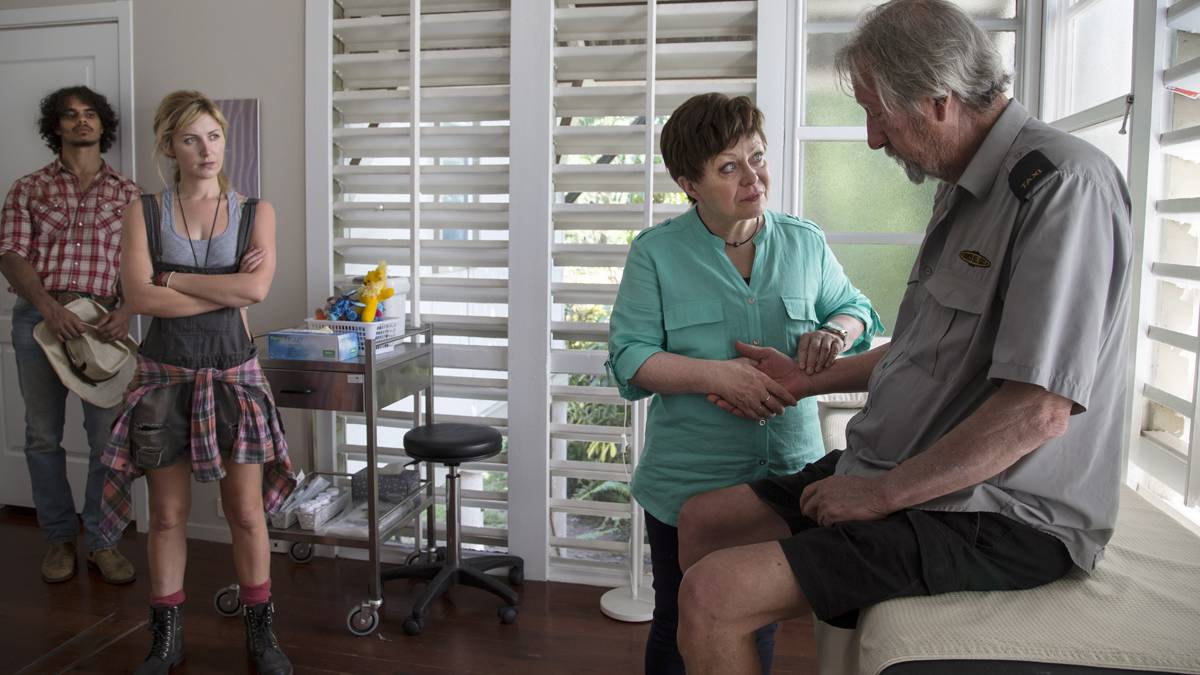
It speaks volumes that ‘Last Cab to Darwin’ works outside Australia. It’s not just satisfying a domestic audience, it’s not just about the specifics of the film.
I suppose if you thought, “This is a film about euthanasia,” but it’s not a film about euthanasia. It’s a film about the loss of old Australians. It’s a story about mateship, it’s a story about an insular guy who’s never been out of Broken Hill, opening up – as the poster says, on his way to die he discovers life. So there’s a lot of different themes there, and there’s a lot about race too. Because that’s something that both Reg, our writer Reg Cribb, and Jeremy are really concerned with. Reg wrote Bran Nue Dae. The gestation for the film – because it was initially a play they had commissioned in 2000 – it had music and a cast of 1,000s. Jackie Weaver played something nine or a dozen roles in it, convinced that her career was over [chuckles]. The fickle figure of fate got her!
And they wanted to make a film but they didn’t know how to make films, so they both went off and learnt how to make films. Then, they worked on this script, honing it down for over five years so that it’s got nothing to do with the stage play. The stage play was this rambling, rambunctious sort of thing. One wonders what they’ll get up to next. They’ve done The Last Train to Freo, the Last Cab to Darwin…
There’s a really mythologised sense of both Australia and New Zealand, but it’s this fantasy that urban people tell themselves. It’s this fantasy that TV ads use to sell products to people. Like butter commercials set on idealised notions of a farm. It’s not real.
Australia, the most urban nation in the world just about.
But it really does feel like that there’s mythologised aspects of our respective cultures, are really in danger of finishing, but we still believe in them.
See, my family came from the country, Central Queensland, and owing to the death of my father, we had to move to the city, because that’s the only way Mum could keep us going. She borrowed some money and bought a shop. That’s the only way she could keep the family together. My life’s been a combination of that – going from real country existence to a very urban one. Then, when I finished school I got into pumping and irrigations…
And we always went back. We always went back to Longreach. I mustered sheep and rounded up cattle, and did all sort of things. It’s a wonder I’m alive because I am not the world’s best horseman. I’ve been wiped off plenty [laughs].
It’s okay – don’t put me on a quad bike, either!
It’s happening all over, because after Toronto, we had a couple of weeks in New York, and the New York accent is dying. We noticed little pockets of it in old people up on the Upper West Side where we stayed with a friend there for a while. You’d get a little bit of that accent, but it’s died because it’s all this funny, homogeneous accent. It’s weird.
Correctly identifying your audience is really such a critical starting point. It has been sad, watching that wave of the small indie films come and go through Aussie cinemas, and my feeling is that we suffer from a bit of that here as well. I think that part of the problem is that maybe the public’s just a bit sick of critics over-praising. Critics think we have a role to play in putting bums on seats, but actually, the best thing you could do is go, “This local movie. It’s a two star, three star movie, it’s not the bees knees.” I think there was a danger of going too far down that road, of praising local productions, and then the public loses trust. If you go to see a film that’s got a four-and-a-half star rating, that’s actually not that good, that dents your confidence in critics.
There’s been three really good, interesting films which were flat for an audience. One is Holding the Man which is a wonderful film.
And there’s The Daughter. It’s interesting – you’ve got three movies, ours one of them– based on plays. The good thing about Last Cab to Darwin is that, even though there was not a lot of dialogue, it was really honed, really polished from the time it had on stage.
You’re seeing that audience every night, right? So that idea of doing something with an audience in mind, it’s gone a long way since it was on a stage. That’s a real process of clarity right there.
Jeremy was really pedantic of the metre and the rhythm of how it was said because he has directed the play.
“No, it goes like this”?
That sort of helps.
‘Last Cab to Darwin’ is available to own on Blu-ray and DVD from Dec 16.





